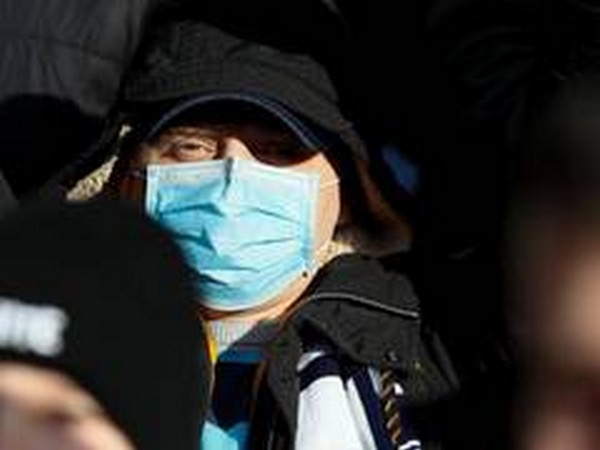New Zealand considers freight as possible source of new coronavirus cluster
New Zealand officials are investigating the possibility that its first COVID-19 cases in more than three months were imported by freight, as the country plunged back into lockdown on Wednesday. The discovery of four infected family members in Auckland led Prime Minister Jacinda Ardern to swiftly reimpose tight restrictions on movement in New Zealand's biggest city and travel limitations across the entire country.

- Country:
- New Zealand
New Zealand officials are investigating the possibility that its first COVID-19 cases in more than three months were imported by freight, as the country plunged back into lockdown on Wednesday.
The discovery of four infected family members in Auckland led Prime Minister Jacinda Ardern to swiftly reimpose tight restrictions on movement in New Zealand's biggest city and travel limitations across the entire country. The source of the outbreak has baffled health officials, who said they were confident there was no local transmission of the virus in New Zealand for 102 days and that the family had not traveled overseas.
"We are working hard to put together pieces of the puzzle on how this family got infected," said Director-General of Health Ashley Bloomfield. Investigations were zeroing in on the potential the virus was imported by freight. Bloomfield said surface testing was underway in an Auckland cool store where a man from the infected family worked.
"We know the virus can survive within refrigerated environments for quite some time," Bloomfield said during a televised media conference. China has reported instances of the coronavirus being detected on the packaging of imported frozen seafood.
On Tuesday, the city government of Yantai, a port city in eastern Shandong province, said it had found the virus on the packaging of frozen seafood that had arrived from the port city of Dalian, which recently battled a surge of cases. Officials said the seafood was from an imported shipment that landed at Dalian but did not say where it originated. The World Health Organization website states there is currently no confirmed case of COVID-19 transmitted through food or food packaging. However, it also notes that studies have shown that the virus can survive for up to 72 hours on plastic.
Residents of Auckland, home to around 1.7 million people, were given just hours to prepare for the return to level 3 restrictions at midday (2400 GMT) on Wednesday, requiring people to stay at home unless for essential trips. The rest of the country was placed back into slightly looser level 2 restrictions. The restrictions will initially remain in place until Friday.
"I have huge sympathy ... this is unsettling," Ardern said. "Stay kind, look after one another." Police set up roadblocks around Auckland to discourage a mass exodus from the city, while supermarkets began rationing the sale of some staple products amid a rush to the shelves. Long queues formed at testing centres in the city.
ELECTION CONCERNS The resumption of lockdown measures was reinforced by confirmation on Wednesday that two members of the infected family had visited tourist sites in the town of Rotorua while symptomatic, and a third had gone to work at a finance company in Auckland, also while symptomatic.
Bloomfield said three people at the finance company were showing symptoms of the virus. The business has been closed, with testing underway on other workers. Health officials were prepared to test tens of thousands of people in the coming days, Bloomfield said.
Ardern also delayed a key step toward a Sept. 19 general election, suspending the dissolution of parliament, that usually kicks off campaigning, until Monday. No decision had yet been made on delaying the actual poll, she added, noting there was a window to defer until Nov. 21. The major opposition party called for the election to be delayed until November as it canceled its campaign launch scheduled for the weekend.
National Party leader Judith Collins also demanded more transparency around the outbreak and the decision to resume lockdown measures, citing the enormity of the economic impact. In a scheduled announcement that coincided with the return to lockdown, the central bank surprised markets by expanding its bond-buying program and held out the prospect of negative interest rates in a bid to revive the virus-battered economy.
"Given the ongoing health uncertainty, there remains a downside risk to our baseline economic scenario," the Reserve Bank of New Zealand said in a statement after expanding its bond purchase program to as much as NZ$100 billion ($65 billion), from NZ$60 billion. It left interest rates at a record low of 0.25%.
(This story has not been edited by Devdiscourse staff and is auto-generated from a syndicated feed.)
ALSO READ
China stocks roughly flat as sentiment remains subdued; HK shares up
China could drive Africa's renewable energy revolution, report says
Science News Roundup: Explainer-Total solar eclipse 2024: When is it and what to expect?; China's Taobao working with startup on deliveries by reusable rocket
China stocks end lower as sentiment remains subdued; HK shares up
Pakistan-China border reopens for travel, trade after four months closure










